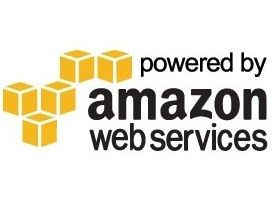Cloud pricing for enterprises falls by two-thirds says TCL

AWS still leads the market with its lower pricing and feature set but others are catching up and market pricing is now ‘stabilising’
Average cloud computing pricing for enterprises has “fallen by two-thirds” since 2014, but pricing is now starting to “stabilise”, according to research
TCL (Tariff Consultancy Ltd) has published its Pricing the Cloud 2 – 2016 to 2020 report, which includes a survey of published cloud pricing from more than 20 top public cloud providers worldwide.
It is an update of the original TCL Pricing the Cloud report published in 2014 and reveals that average entry-level cloud computing pricing has declined by some 66 percent over the last two year period to November 2015.
 The decline in cloud pricing “reflects in part the intense competition” between public cloud computing providers, and also the “rapid product innovation” that is taking place among the key worldwide platform providers, said TCL.
The decline in cloud pricing “reflects in part the intense competition” between public cloud computing providers, and also the “rapid product innovation” that is taking place among the key worldwide platform providers, said TCL.
The market for cloud computing products “remains dominated” by AWS which has a quarter of the IaaS segment, followed by Microsoft Azure. “AWS has a record of consistent product innovation”, said TCL, with over 500 product features launched since 2008, and continues to provide new services, including a recently announced cloud service to support the Internet of Things (IoT).
TCL calculates that the average entry-level cloud computing instance is now at $0.12 per hour (based on the Windows OS). The range of pricing available has “narrowed” over the past two year period, as cloud computing providers, such as Rackspace Hosting and others, have reduced their rates towards the levels charged by the global cloud providers – such as AWS, Microsoft Azure and Google.
TCL’s research finds that the reduction in pricing continues to drive cloud adoption. Cloud services are now being used by enterprises across a range of their critical applications. The cost of introducing private cloud services is also falling, which is encouraging the large enterprise to adopt a hybrid cloud infrastructure.
 Into 2016, the cost of the public cloud “appears to have reached a price point which is now relatively stable”, added TCL. For example, both AWS and Microsoft are offering a “similar entry level compute instance”, with other cloud providers following with “similar pricing”.
Into 2016, the cost of the public cloud “appears to have reached a price point which is now relatively stable”, added TCL. For example, both AWS and Microsoft are offering a “similar entry level compute instance”, with other cloud providers following with “similar pricing”.
TCL forecasts that average public cloud pricing will fall by 14 percent over the four year period from 2016 to 2020 – but with “less intense price competition” over the period.
TCL also anticipates that total revenues for public cloud services will “increase rapidly” over the same period by more than three times to $82 billion, as more end users come on-board.
The research covers cloud providers including AWS, AT&T, Biznet, BT, CAT Telecom, CenturyLink, Citrix, Dimension Data, Fujitsu, Joyent, Microsoft Azure, Oracle, OVH, Sungard AS, Salesforce.com, IBM SoftLayer, Google, iomart, Rackspace Hosting, SAP, PLDT, VMware, Verizon and Vodafone.
@AntonySavvas